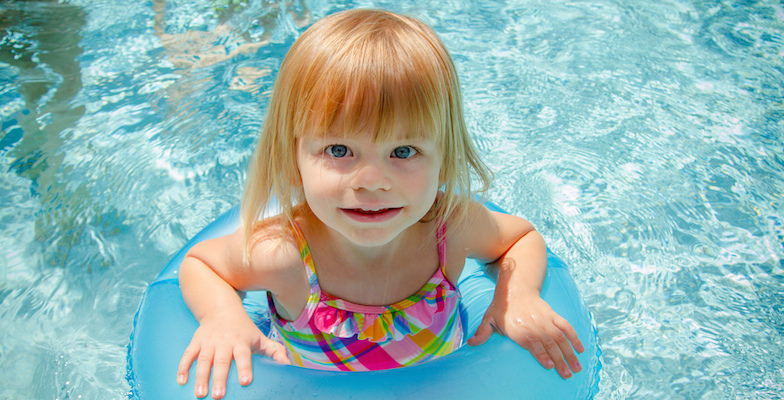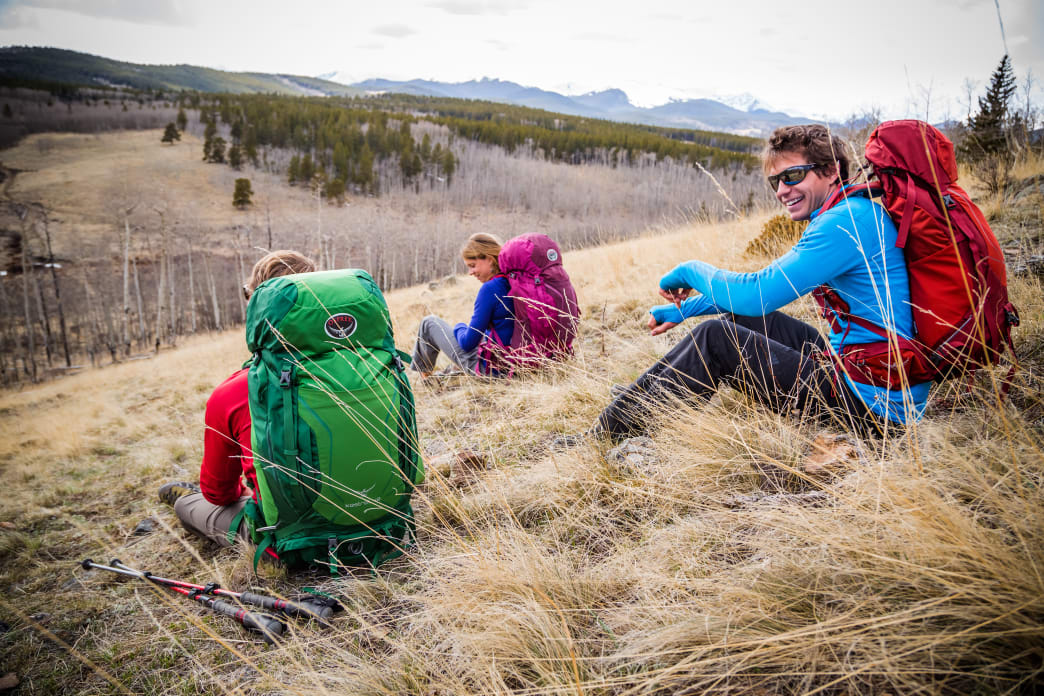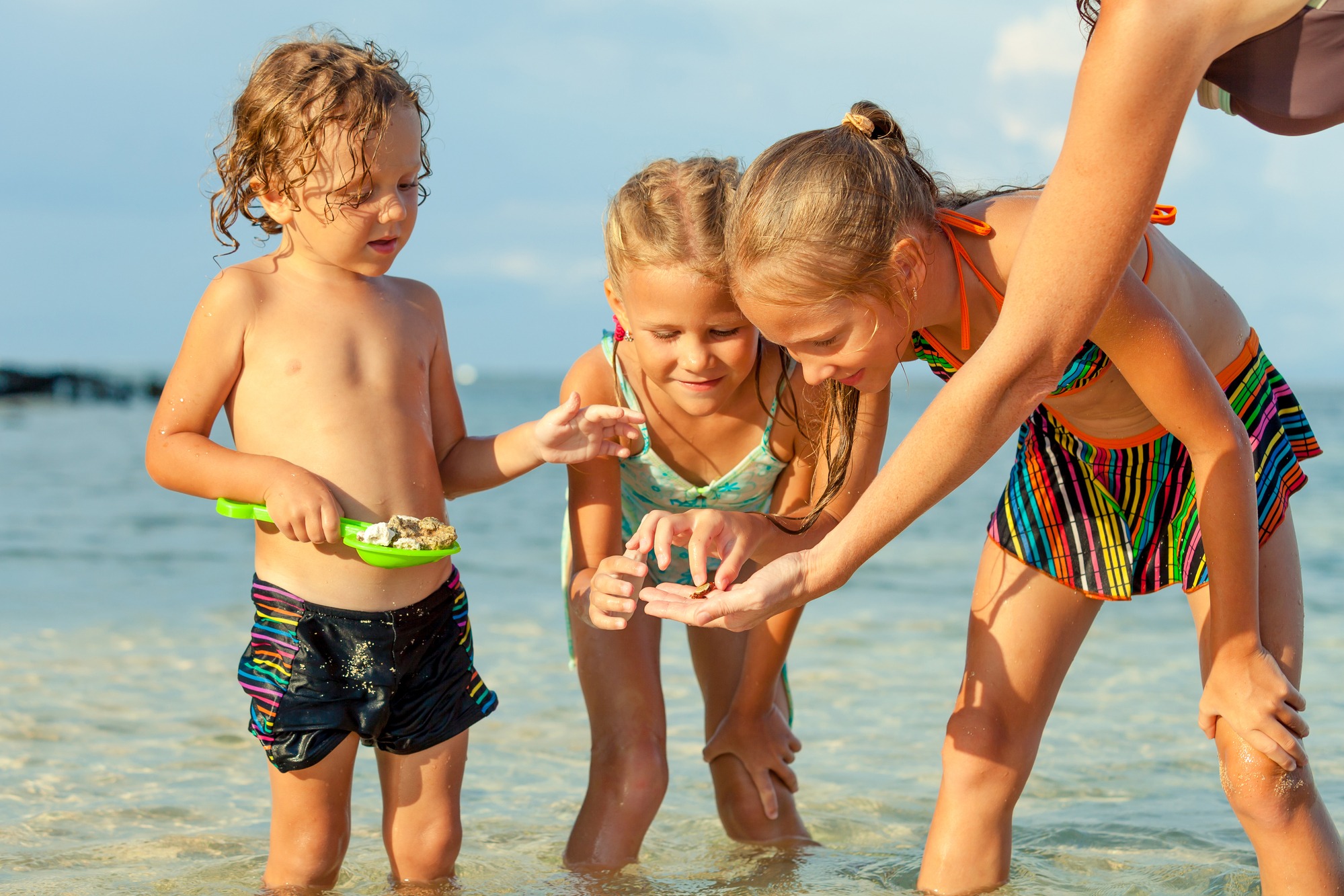Keep safe, sound and vacation bound
By Mara Gorman

Safe Summer Travel (Girl in Pool (Flickr: Rain0975))
Long days, plenty of sunshine, maybe an ice cream cone or two: There’s no time like summer to take a family vacation. But it can also be the season of burns, stings, and tumbles for kids as they spend more time outside.
Between heat, bugs, sun, and water there are definitely some challenges when it comes to keeping kids safe and healthy on summer family vacations. But with a few commonsense precautions, parents can minimize the ouch factor and maximize the fun side of summer.
Here are tips for keeping kids healthy and safe while traveling during the summer months:
Beat the heat. There are three easy things you need to remember about keeping children safe when it’s hot: Apply sunscreen regularly, give them plenty of drinks (ideally one every 15 minutes, even during swimming), and offer healthy, hydrating snacks like fresh fruit or cut-up veggies. That means before leaving on your vacation, you’ll want to invest in insulated water bottles for each member of your family and a travel cooler.
And here’s a bonus tip for road-trip stops – remember that you should never leave children alone in the car because the temperature inside will rise to dangerous levels quickly on a hot day.
(MORE: Snag free printable games to entertain kids on the road.)
Stay smart in the sun. We all love sunny summer days, whether they’re spent at the ocean or a mountain lake. But it’s important to be savvy about sun exposure, which can lead to skin and eye damage if kids aren’t protected.
Very young babies should be kept out of direct sunlight. For babies older than six months and toddlers, use a barrier sunscreen that contains zinc oxide or titanium dioxide (or both). Older children should wear a broad-spectrum chemical sunscreen of at least an SPF of 30 or greater. Will you be spending the day in the car? Remember that kids can get sunburns through car windows, and slather on the sunscreen accordingly.
You also can’t beat sun-protective clothing, sunglasses, and hats to keep kids’ skin safe.

Safe Summer Travel (Family Hiking Trip (Photo courtesy of Osprey Packs)
Be prepared for bugs and bites. If you are spending time on your summer vacation hiking or camping, you’re likely to encounter critters that bite. The best way to keep them at bay is by using insect repellant (the kind using 10 percent or less of DEET is most effective and safe for kids). Get in the habit of doing a tick check as part of your nighttime routine. Look behind ears, knees, and elbows, and check your child’s trunk and neck as well. Use tweezers to remove any ticks you find and save them in a bag to show your doctor. Then keep an eye out for the telltale bull’s-eye that indicates your child has Lyme disease. Call your child’s pediatrician right away if you see a rash.
If your child gets a burning sting, apply a cold pack and give some over-the-counter pain medicine like acetaminophen.
Watch out around water. The rules are the same whether you’re at a beach or chilling by the hotel pool – you should supervise your children in the water at all times. For young children, that means going in the water with them and keeping them at arm’s length; for older kids, it means a poolside adult needs to be keeping an eye on them (without chatting, texting, or reading).
A smart move before your beach vacation is to learn infant and child CPR – classes are available online from the American Red Cross.
Pack smart picnics. If you are planning to eat a lot of picnics on the road, invest in a thermal bag or backpack and a cold pack to help keep food fresh. Don’t serve sandwiches or salads that have been sitting out in the heat.
While you’re traveling, make sure your children wash their hands with soap before eating whenever you can. Hand sanitizer or a pack of antibacterial wipes will work in a pinch; the latter can also be used to clean off potentially dirty utensils before you use them.
(MORE: Did you pack everything? Check our free packing lists.)

Safe Summer Travel (Family Beach Vacation (Photo credit: altanaka)
Keep a well-stocked first aid kit. Be prepared for minor problems by packing a portable kit that includes over-the-counter pain medicine, antiseptic cream, a cold pack, tweezers, and bandages. If your child has any allergies or asthma, keep any prescription medicine here as well. And you should have your pediatrician’s phone number available at all times.
Mara Gorman of MotherOfAllTrips.com contributed this to www.MiniTime.com.





